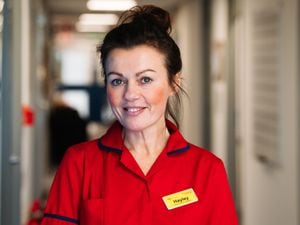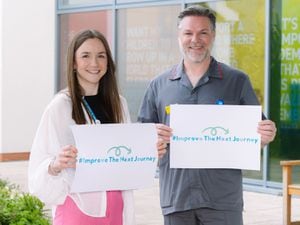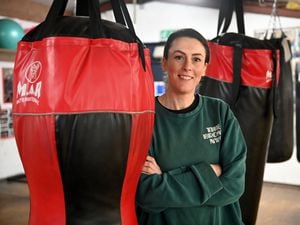Mother backs £400 million funding call made after initial findings of Shropshire baby death review
A mother whose efforts helped to uncover the extent of the county’s maternity scandal is now backing calls for significant funding required to improve services.
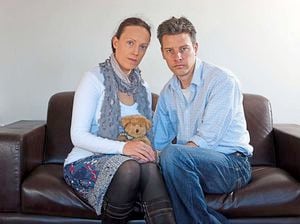
Improving the safety of maternity units and implementing recommendations made as part of the Ockenden inquiry into baby deaths at Shropshire's main hospitals, across the country will reportedly cost £400 million per year.
Rhiannon Davies, whose daughter Kate died avoidably in the care of Shrewsbury and Telford Hospital NHS Trust, was one of the campaigners that led to the inquiry being launched in 2017 and has backed calls for the funding to make improvements.
She said today: "Why not invest up front and safe lives. What's one baby's life worth?
"I support the call for increased funding and I'm supportive of the commitment that multiple trust chiefs have made to implement the interim findings.
"I also think it's up to the Department of Health and Social Care to state what they are going to do.
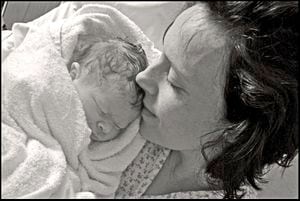
"The onus is on the Department of Health and Social Care to step up.
"They say there are record numbers of midwives working across the NHS but it doesn't mean there's enough.
"They should be stating this is how we are going to do it."
An initial report from the review said maternity staff had caused distress to patients by using “inappropriate language” and blaming grieving mothers for their loss.
Actions
It identified 27 local actions needed to improve maternity services at SaTH, which runs Royal Shrewsbury Hospital and Princess Royal Hospital in Telford, as well as seven which are recommended for across England.
Led by senior midwife Donna Ockenden, the review said risk assessments throughout pregnancy and the monitoring of foetal wellbeing need to be ensured, along with enhanced safety, listening to women and families, managing complex pregnancy, and staff training.
In the wake of the interim report, the Royal College of Obstetricians and Gynaecologists and Royal College of Midwives said ensuring safer care will require investment and “increasing workforce numbers to address the serious shortage of midwives and obstetricians”.
Chris Hopson, chief executive of NHS Providers, an organisation representing NHS trusts, said at least £250 million would be needed annually to achieve the required increase in workforce numbers across the country.
In a letter to Health Select Committee chairman Jeremy Hunt, he wrote: "If we include shortfalls in neonatal nurses, maternity support workers and anaesthetists, for example, the total annual extra recurrent funding required could be as high as £400 million or more."
The “emerging findings” report from the Ockenden review was published in December, based on a review of a selection of 250 cases of concern, which include the original 23 cases that initiated the inquiry.
A fuller review will take in the cases of 1,862 families.
Speaking following the publication of the emerging findings report, Louise Barnett, chief executive at SaTH, said: “As the chief executive now and on behalf of the whole trust, I want to say how very sorry we are for the pain and distress that has been caused to mothers and their families due to poor maternity care at our trust.
“We commit to implementing all of the actions in this report and I can assure the women and families who use our service that if they raise any concerns about their care, they will be listened to and action will be taken.”
The Department of Health and Social Care said it was fully committed to patient safety and is working closely with partners across the health service to consider next steps to tackle the difficult issues the Ockenden review raised.

